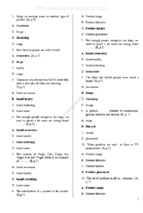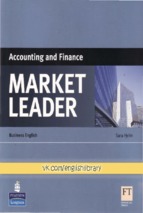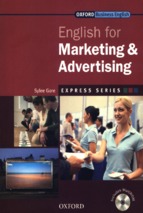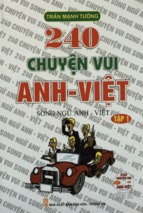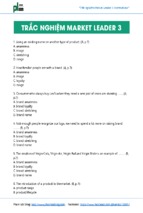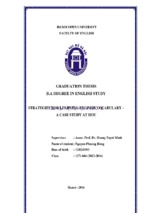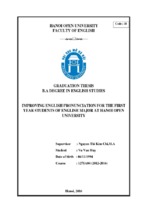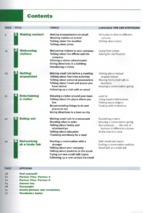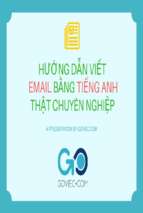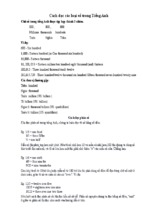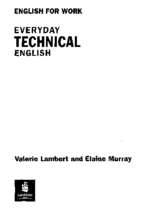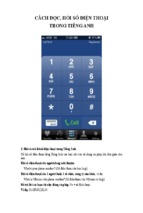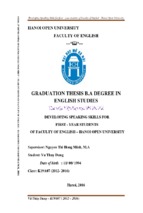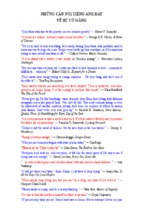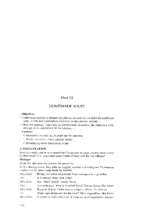101 Great Answers to the Toughest Interview
Questions:
Fourth Edition
Ron Fry
Copyright © 2000 by Ron Fry
All rights reserved under the Pan-American and International Copyright Conventions.
This book may not be reproduced, in whole or in part, in any form or by any means
electronic or mechanical, including photocopying, recording, or by any information
storage and retrieval system now known or hereafter invented, without written
permission from the publisher, The Career Press.
101 GREAT ANSWERS TO THE TOUGHEST INTERVIEW QUESTIONS, 4TH EDITION
Cover design by Lu Rossman
Printed in the U.S.A. by Book-mart Press
To order this title, please call toll-free 1-800-CAREER-1 (NJ and Canada: 201-8480310) to order using VISA or MasterCard, or for further information on books from
Career Press.
The Career Press, Inc., 3 Tice Road, PO Box 687, Franklin Lakes, NJ 07417
Library of Congress Cataloging-in-Publication Data
Fry, Ronald W.
101 great answers to the toughest interview questions / by Ron Fry.—4th ed. p. cm.
Includes index.
ISBN 1-56414-464-X (paper)
1. Employment interviewing. I. Title: One hundred and one great answers
to the toughest interview questions. II. Title.
HF5549.5.I6 F75 1999
650.14—dc21
99-088155
Introduction
You Can Get There From Here
It's been nearly a decade since I wrote the first edition of 101 Great Answers to the
Toughest Interview Questions. I certainly couldn't boast of my own interviewing skills
before I wrote the book. Far from it—I had often not gotten jobs for which I was
eminently qualified. So I spent quite a lot of time learning all the mistakes you could
possibly make, having made each one of them—twice.
Instead of giving up (which, I admit I felt like doing more than once), I decided to
plunge into the interviewing process with even greater gusto. Fortunately—and only
after a lot more interviews—I got better. Now, as a veteran of the other side of the
desk as well (I've hired hundreds and interviewed thousands), I can tell you that
interviewing is more serious business than ever before.
Employers are looking for "self-managing" employees—people who are versatile,
confident, and not afraid to roll up their sleeves and get the job done. But you can't get
started proving yourself without making it through the interview process.
Let's face it. Interviewing was never easy. But of all the tools in your professional
arsenal, your ability to shine in that brief moment in time—your initial interview—
can make or break your chances for a second go-around, and, ultimately, dictate
whether you're ever given a shot at the job.
Chopsticks, Anyone?
Like playing the piano, interviewing takes practice. And practice makes perfect. The
hours of personal interviewing experience—the tragedies and the triumphs—as well
as my years as an interviewer are the basis for this book. My intention is to spare you
many of the indignities I suffered along the way by helping you prepare for the
interview of your worst nightmares—at a comfortable distance from the interviewer's
glare.
Will you have to answer every question I've included? Certainly not—at least, not in a
single interview. But chances are, the questions tomorrow's interviewer doesn't ask
will be on the tip of the next interviewer's tongue. Why? It's a mystery.
Think on Your Feet
Most interviewers are not trying to torture you for sport. They use tough questions to
get right to the heart of specific issues. Their motive is to quickly learn enough about
you to make an informed decision—should you stay or should you go? By the same
token, if you know what they're looking for, you can craft your answers accordingly
(and reduce your own fear and anxiety at the same time).
Is this the ultimate crib sheet? Sort of. But I hope you'll take it a step further and use
these questions as the basis for some thoughtful self-exploration. You'll need to be
prepared to think for yourself—on your feet, not by the seat of your pants.
An Organized Layout to Get You Organized
Chapters 1 and 2 offer a detailed discussion of the work you need to do and the things
you need to think about long before you strut into your first interview. Interviewing
may not be 99 percent preparation, but it's certainly 50 percent.
In Chapters 3 through 10, we'll get into the meat of the book—the questions for which
you must prepare and the answers most interviewers are hoping to hear. (I have not
counted every question in this book, from the main ones to the variations, but there
are now far more than the 101 still advertised on the cover.) Additionally, I've laid out
this new edition in a way that makes it more practical and easy-to-use. Each question
is generally followed by a series of three subheadings:
• What do they want to hear?
(What information is the interviewer seeking?)
There may be follow-up questions you should expect or variations an interviewer may
substitute after each major question as well.
One, Two, Three . . . Red Light!
The "red lights" after many of the questions indicate answers that will make the
average interviewer cringe and the busy interviewer simply suggest you try another
firm.
After almost every question in the book, however, I could have included the same list
of "general" red lights, those factors that should be avoided in any interview or in the
answer to any question. So as not to unnecessarily clutter up the book, let me just state
these all-encompassing negatives right here:
• Poor grooming.
• Showing up late.
• Inappropriate dress.
• An answer, good and specific or not, that simply does not answer the question asked.
• An answer, good and specific or not, that simply does not answer the question asked.
• Lack of knowledge of the company, job, and/or industry (evidence of poor or
nonexistent preparation and research).
• Dishonesty.
• Lack of enthusiasm/interest.
• Asking the wrong questions.
• Any answer that reveals you are clearly unqualified for the job.
• Any disparity between your resume/cover letter and interview answers (such as
providing details about jobs not on your resume).
• Lack of focus.
• Lack of eye contact.
• Any negativity, especially in discussing people (your last boss, co-workers).
• Inability to take responsibility for failures/weaknesses/ bad decisions/bad results, or
taking full credit for what clearly was contributed to by others.
Although most interviewers may not consider any of these an automatic reason for
dismissal, an accumulation of two or more may force even the most empathetic to
question your suitability. (Some items, of course, such as dishonesty, may well lead to
an immediate and heartfelt "thank you ... see you.")
Gee, I Didn't Think You were Going to Ask That!
The questions in this book are grouped by type. They are not in some suggested order.
Many of the questions in Chapters 8 or 10, for example, may well be some of the first
questions asked in every interview! So read the entire book and prepare for all of the
questions in any order.
I urge you to spend time refining these answers. Polish them until they glitter. Read
them over and over again so you become familiar and comfortable with them. Take
time to memorize some (don't worry, I'll tell you which ones) so you can repeat them
verbatim to the interviewer in a way that sounds spontaneous and enthusiastic—not
tired and rehearsed.
A lot of work, you say? It might sound like a daunting challenge right now. But I
assure you, by the time you finish this book, you'll actually be looking forward to the
challenge of your next job interview.
Pause for Self-Congratulations
Despite my sterling reputation with employment offices, the first edition of this book
became a bestseller. In fact, it continues to sell, year after year. I don't pretend to
know why it has done as well as it has, but I will hazard a guess: It's simple,
straightforward, practical, and written in a welcoming and humorous style. (Okay, I
suppose that counts as four and a half guesses.)
And it has clearly helped literally hundreds of thousands of candidates prepare for
every type of interview and every style of interviewer. I'm pleased and proud that this
new ''millennial" edition will help many more of you in the next century!
Rather than spend a lot more time telling you what you're going to learn, let's just get
you started. Good luck.
—RON FRY
JANUARY, 2000
P.S. I almost forgot to mention the usage of gender throughout this book. Instead of
being gender-biased, I've chosen to split the difference and mix up the usage of him
and her wherever it doesn't get too cumbersome.
Chapter One —
The Product Is You
The object of this chapter is to prepare you to comfortably answer one—and only
one—question: "Who are you?" Believe it or not, the success or failure of many
interviews will hinge on your ability to answer this seemingly simple question.
The interviewing process is a kind of sale. In this case, you are the product—and the
salesperson. If you show up unprepared to talk about your unique features and
benefits, you're not likely to motivate an interviewer to "buy."
The sad fact is that many job candidates are unprepared to talk about themselves. You
may have mailed a gorgeous resume and cover letter. You may be wearing the perfect
clothes on the day of the interview. But if you can't convince the interviewer—face to
face—that you are the right person for the job, you aren't likely to make the sale.
Too many candidates hesitate after the first open-ended question, then stumble and
stutter their way through a disjointed litany of resume "sound bites." Other
interviewees recite canned replies that only highlight their memory skills.
I am assuming that, like most people, you are a complex product—made up of a
unique blend of abilities, skills, and personal qualities and shaped by your own
personal and professional history. Believe me, the time you spend outlining the details
of your own life will pay off in interviews, and, ultimately, job offers. This chapter
will guide you through the process.
What You Should Know about You
You may think you already know your life by heart, but you'll be amazed to see how
much additional detail you can remember (and ultimately how it will fit together in
the context of your next career move) once you write it down.
So, your first step is to imitate the FBI and build a complete "dossier" on yourself.
The Data Input Sheets at the end of this chapter will help you organize important,
work-related information about yourself. With this information in place, it will be
easier to develop a concise and convincing answer to almost any interview question—
an answer that will set you apart from the competition. (I've only included one copy
of each form. Feel free to reproduce as many as you need.)
Employment Data Input Sheet
Prepare a separate sheet for every full-time and part-time job you have ever held, no
matter how short the tenure. Yes, even summer jobs are important here. They
demonstrate resourcefulness, responsibility, and initiative—that you were already
developing a sense of independence white you were still living at home. Whether you
choose to include some, all, or none of these short-term jobs on your resume or to
discuss them during your interview is a decision you will make later. For now, write
down everything about every job. For each employer, include:
• Name, address, and telephone number (plus an e-mail address if you have one).
• The names of all of your supervisors and, whenever possible, where they can be
reached.
• Letters of recommendation (especially if they can't be reached).
• The exact dates (month and year) you were employed.
For each job, include:
• Your specific duties and responsibilities.
• Supervisory experience, noting the number of people you managed.
• Specific skills required for the job.
• Your key accomplishments.
• The dates you received promotions.
• Any awards, honors, and special recognition you received.
For each part-time job, also include:
• The number of hours you worked per week.
Don't write a book on each job. But do concentrate on providing specific data (volume
of work handled, problems solved, dollars saved) to paint a detailed picture of your
abilities and accomplishments. Believe me, these hard facts will add a powerful punch
to your interview presentation. For example:
Duties: Write one or two sentences giving an overview of the tasks you handled in
each of the jobs you held. Use numbers as often as possible to demonstrate the scope
of your responsibilities. An experienced salesperson might write:
• Responsible for managing 120 active accounts in sales territory that contributed $3
million in annual revenues.
• Reviewed activity of three telephone salespeople.
Skills: Name the specific skills required to perform your duties—highlighting those
that you developed on the job. The same salesperson might write:
• Trained other sales staff in new product lines.
• Handled telephone support for customer base of 100.
Key accomplishments: This is the place to "brag." But be sure to back up each
accomplishment with specifics, including results. For example:
• Developed new call-reporting system that increased volume in territory 20 percent
within 18 months.
• Oversaw computerization of department that helped realize cost savings of 15
percent.
Volunteer Work Data Input Sheet
Having hired hundreds of people during my career, I can assure you that your "afterhours" activities will be considered and weighed by many interviewers. Workaholics
rarely make the best employees.
So take some time to make a detailed record of your volunteer pursuits, similar to the
one you've just completed for each job you held. For each volunteer organization,
include:
• Name, address, and telephone number (plus e-mail address, if available).
• The name of your supervisor or the director of the organization.
• Letter(s) of recommendation.
• The exact dates (month and year) of your involvement with the organization.
For each volunteer experience, include:
• The approximate number of hours you devoted to the activity each month.
• Your specific duties and responsibilities.
• Specific skills required.
• Accomplishments.
• Any awards, honors, and special recognition you received.
Educational Data Input Sheets
If you're a recent college graduate, or if you are still in college, you don't need to
rehash your high school experiences. If you have a graduate degree or are a graduate
student, however, you should list both graduate and undergraduate course work. If
you're still in school and graduation is more than a year away, indicate the number of
credits you've earned through the most recent semester completed.
Activities Data Input Sheet
I'm always interested in—and impressed by—candidates who talk about books
they've read and activities they enjoy. So make a list of all the sports, clubs, and other
activities in which you've participated, inside or outside of school. For each activity,
club, or group, include:
• Its name and purpose.
• Any offices you held; special committees you formed, chaired, or participated in; or
specific positions you played.
• The duties and responsibilities of each role.
• Key accomplishments.
• Any awards or honors you received.
Awards and Honors Data Input Sheet
List all the awards and honors you've received from school(s), community groups,
church groups, clubs, and so on. You may include awards from prestigious high
schools (prep schools or professional schools) even if you're in graduate school or
long out of college.
Military Service Data Input Sheet
Many employers are impressed by the maturity of candidates who have served in the
armed forces and consider military service excellent management training for many
civilian jobs. So if you've served in the armed forces, even for a short time, make sure
you can discuss your experiences and how they tie into your professional aspirations.
Be sure to include:
• Final rank awarded.
• Duties and responsibilities.
• Citations and awards.
• Details on specific training and/or any special schooling.
• Special skills developed.
• Key accomplishments.
Language Data Input Sheet
Even if you're not applying for a job in the international arena, your ability to read,
write, and speak a second language can make you invaluable to employers in an
increasing number of research and educational institutions and multinational
companies. One year of college Russian won't cut it. But if you spent a year studying
in Moscow—and can carry on a conversation like a native—by all means write it
down.
Putting It in Your Perspective
Once you've finished completing these forms, you'll have a lot of information—
facts—about what you've done and where and with whom you've done it. But any
interviewer worth his or her pepper will be looking for more. So once you've finished
with the fact-finding, practice putting it all into perspective—your unique, personal
perspective, that is. Write down your answers to the following questions, which you
should expect an interviewer to be interested in asking:
1. Which achievements did you enjoy most? Which are you proudest of? Be
ready to tell the interviewer how these accomplishments relate to the position
at hand.
2. What mistakes have you made? Why did they occur? How have you learned
from them, and what have you done to keep similar things from occurring
again?
3. How well do you interact with authority figures—bosses, teachers, parents?
4. What are your favorite games and sports? Think about the way you play these
games and what that says about you. Are you overly competitive? Do you give
up too easily? Are you a good loser—or a bad winner? Do you rise to a
challenge or back away from it?
5. What kinds of people are your friends? Do you associate only with people
who are very similar to you? Do you enjoy differences in others—or merely
tolerate them? What are some things that have caused you to end friendships?
What does this say about you?
6. If you were to ask a group of friends and acquaintances to describe you, what
adjectives would they use? List all of them—the good and the bad. Why
would people describe you this way? Are there specific behaviors, skills,
achievements, or failures that seem to identify you in the eyes of others? What
are they?
What's the Point?
By now, you're probably a bit uncomfortable—and wondering, "What's the point of
all this soul-searching? After all, I'm just trying to get ready for a job interview!"
The point is this: The better you know yourself, the better you can sell yourself to a
prospective employer when you're on the spot in an interview. From your Data Input
Sheets, you can compile a list of your best features under the following headings:
My strongest skills.
My greatest areas of knowledge.
My greatest personality strengths.
My key accomplishments.
Now transform your best features into benefits for your prospective company:
1. What in my personal inventory will convince this employer that I deserve the
position?
2. What are the strengths, achievements, skills, and areas of knowledge that
make me most qualified for this position? What in my background should
separate me from the herd of other applicants?
By answering some tough questions about the mistakes you have made—and the lessthan-positive feedback you've gotten—you can also locate areas that may need
improvement. Do you need to develop new skills? Improve your relations with those
in authority? If you have been thorough and brutally honest (and it may feel brutal!),
you may find out things about yourself that you never knew.
The more time and effort you invest in answering questions like these—while you
have a cool head—the less you'll sweat once you're in the interviewer's hot seat. It's
up to you.
But before we forge ahead to the first of the questions you're likely to field, let's take a
closer look at the interview process itself.
- Xem thêm -

